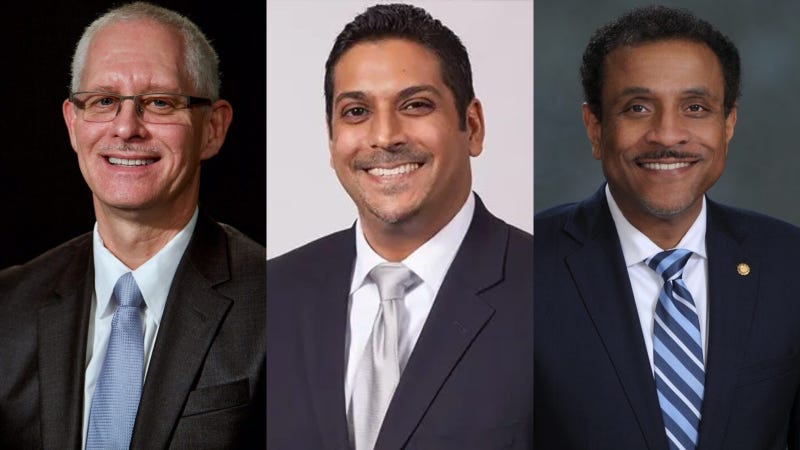
PHILADELPHIA (KYW Newsradio) — None of the three finalists being considered for Philadelphia schools superintendent is from the Delaware Valley. The three candidates are from Maryland, Illinois and North Carolina — prompting a debate over why a local candidate is not in the mix.
Philadelphia hasn’t selected a home-grown superintendent since Connie Clayton in 1982, and apparently won’t this time around. Commonwealth Association of School Administrators President Robin Cooper, representing the city's principals, is disappointed that all three finalists are outsiders.
“It’s time to stop using Philadelphia as an experiment. People come in, they make their money, they’re given all of these great incentives. They’re not vested,” Cooper said.
David Hardy, founder of Boys’ Latin Charter School and now a senior fellow at the Commonwealth Foundation, thinks first of teachers.
“I think that’s kind of an insult to all of the great educators in the Philadelphia area,” Hardy said.
Hardy says it is important to remember that a new mayor will be elected next year — and the mayor is the one who picks the Philadelphia Board of Education, who hires the superintendent.
“That person may in fact be a big issue in a mayoral race. And the board that picked him may not be there after that mayoral race.”
School Board President Joyce Wilkerson says, while there are excellent educators in Philadelphia, the job requires executive experience as well.
“Being a superintendent is different from being a classroom teacher, and you want to make sure that people have had the experience with a span of responsibility reaching not only into the classroom but into some of the operational areas,” Wilkerson said.
Whoever is hired will have to get to know the city, she said.
“All the candidates understand that it’s something that’s really important. They need to spend the first 30, 60 days really getting out and meeting people in Philadelphia — getting to know the neighborhoods here and what’s important," Wilkerson said.
Former School District of Philadelphia CEO Paul Vallas said that as an outsider, he felt welcomed in Philadelphia but knew that he had to hit the ground running.
“Obviously, I had to quickly articulate a vision, because it’s not a patient city,” Vallas said. “They want to see somebody coming in — and even if they don’t embrace your vision 100%, they want to know that you have ideas.”
Vallas came in from Chicago to run Philadelphia schools in 2002, and he says it’s often better to choose a local leader.
“When you can promote somebody from within as opposed to bringing somebody from without, you do it. I think it’s a smart decision to make. I think it helps you. It helps you to rally the troops, because you’re not simply disregarding the possibilities that there may be talent from within.”
State Rep. Jordan Harris, D-Philadelphia, says while a local candidate is preferable, it is not essential.
“Having a Philadelphia-like experience is important to me — being culturally competent, knowing that Philadelphia is a city of neighborhoods, and a person willing to go out and learn those neighborhoods, I think are the most important traits,” Harris said.
“As long as a person comes with an experience that will assist them in serving our students, them being from Philadelphia per se, is not the most important thing.”
Outgoing superintendent William Hite would agree. Being from Virginia and Maryland, he said, was likely an advantage when he arrived and announced he was closing schools.
“It was extremely hard and difficult for me, but I think it would have been much harder for someone who had ties to the city, had ties to the community and was a well-known entity,” Hite said.
Hite pointed out that it is common for school districts to hire leaders from outside.
There has also been blowback to the fact that no women were chosen to be among the finalists, despite the fact that a large majority of educators in the city are women.
One organization, the Alliance for Philadelphia Public Schools, asked for a resumption of the search for a new superintendent, asking questions about not having either a woman candidate or one from Philadelphia.
The mayor’s chief education officer, Otis Hackney said, while a local candidate would have less of a learning curve, success is ultimately based on the candidate’s skill set.




